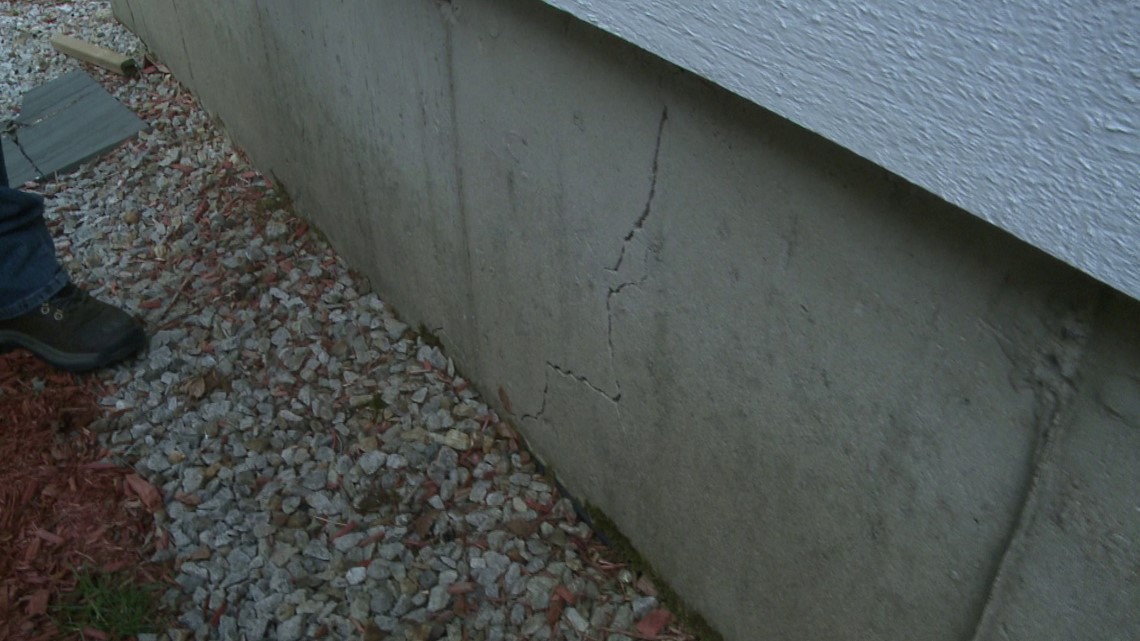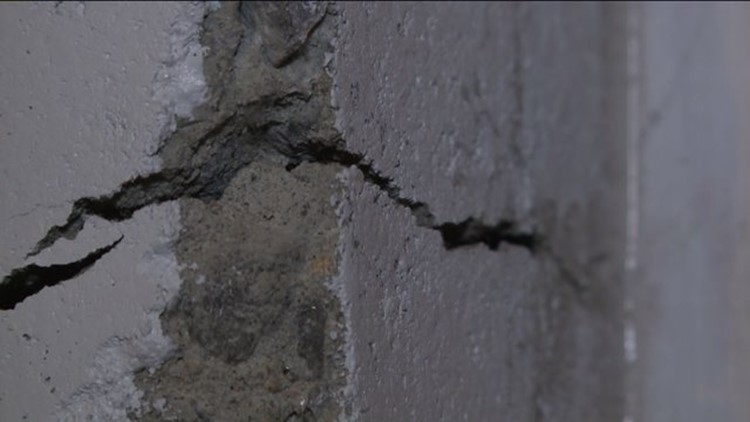

HARTFORD–It’s an issue that has plagued the state for some time, and now the state government is seeking federal assistance.
Gov. Dan Malloy submitted a request to the Federal Emergency Management Agency to create a field office in northeastern Connecticut to manage damage assessment of the 34,130 homes with possibly crumbling or collapsed foundations. So far, at least 350 insurance claims or consumer complaints have been filed within the state, but many homeowners may be unaware of the damage.
According to Mallloy, replacing a home’s foundation can cost anywhere from $75,000 to $150,000, meaning the total cost of repairing these homes would be between $100 million and $1 billion.
The homes are all located within a 20 mile radius around a quarry in Willington where a dangerous, but naturally occurring mineral could be found, leading Malloy’s office to say the issue a natural disaster. That would fall under FEMA’s realm.
“In April 2016, the Lieutenant Governor and I directed the Connecticut Division of Emergency Management and Homeland Security (DEMHS) to contact FEMA Region 1 to investigate what assistance the agency could provide these homeowners,” Governor Malloy wrote to agency administrator Craig Furgate. “The informal response we received back in an email from the FEMA Regional Administrator was that the crumbling foundation issue did not appear to constitute an emergency or major disaster. Instead, it was suggested that it might be a consumer product defect or construction safety issue.”
But the state Department of Consumer Protection countered that suggestion. In a report released in June, it concluded that there was no evidence that two companies that created the concrete foundations deliberately used the faulty concrete that has led to cracks. The Joseph J. Mottes Company and the Becker Construction Company were the two that built the homes involved in the claim.
Gov. Malloy said as much in his letter.
“Since that time of our informal request to FEMA Region 1, we have further scientific information that this potentially catastrophic damage appears to be the result of a natural disaster – specifically the reaction of a naturally occurring mineral, pyrrhotite, to oxygen and water. Pyrrhotite is an iron sulfide mineral, thus exposure to oxygen and water leads to a chemical reaction which results in deterioration, and disastrous results for a home foundation.”
You can read the full letter here.
No state or federal building standards regulate the amount of pyrrhotite allowed in foundations.
In June, Connecticut Attorney General George Jepsen said the state has reached a deal with a handful of insurance companies to finance a program meant to compensate affected homeowners. The program could provide homeowners up to 90 percent of the cost of replacing the damaged foundations.
But Jepsen said just four of the 29 insurance companies working in impacted communities in Hartford, Tolland and Windham counties have so far agreed to take part. The Hartford, Travelers, Amica, and an unnamed company said they would form a pool from which victims can recoup some repair costs.
In September, homeowners rallied outside the governor’s mansion, asking for him to exert leadership on the issue. At the time, Malloy came outside and spoke to the group, saying the foundations needed to be tested and pressure should be put on insurance companies to participate in this process.
In June, the DCP said in its report that as a result of this situation the state should enact legislation to limit the use of pyrrhotite and pyrite in home foundation concrete, but that when the homes involved in the case were built in the ’80s and ’90s not a lot was known about the danger of those materials. Without legislation, the state cannot easily pursue claims under the Connecticut Unfair Trade Practices Act.
The two companies previously, and voluntarily, agreed to stop selling materials or products containing aggregate from Becker’s Quarry in Willington for use in residential concrete foundations in Connecticut until June 2017 to give the Legislature a chance to enact statutes.
A majority of those who filed claims have not yet agreed to participate in the program with the insurance company, which would dampen their ability to recuperate money through a claim of unfair business practices, but officials are still working to reach out to the homeowners.



